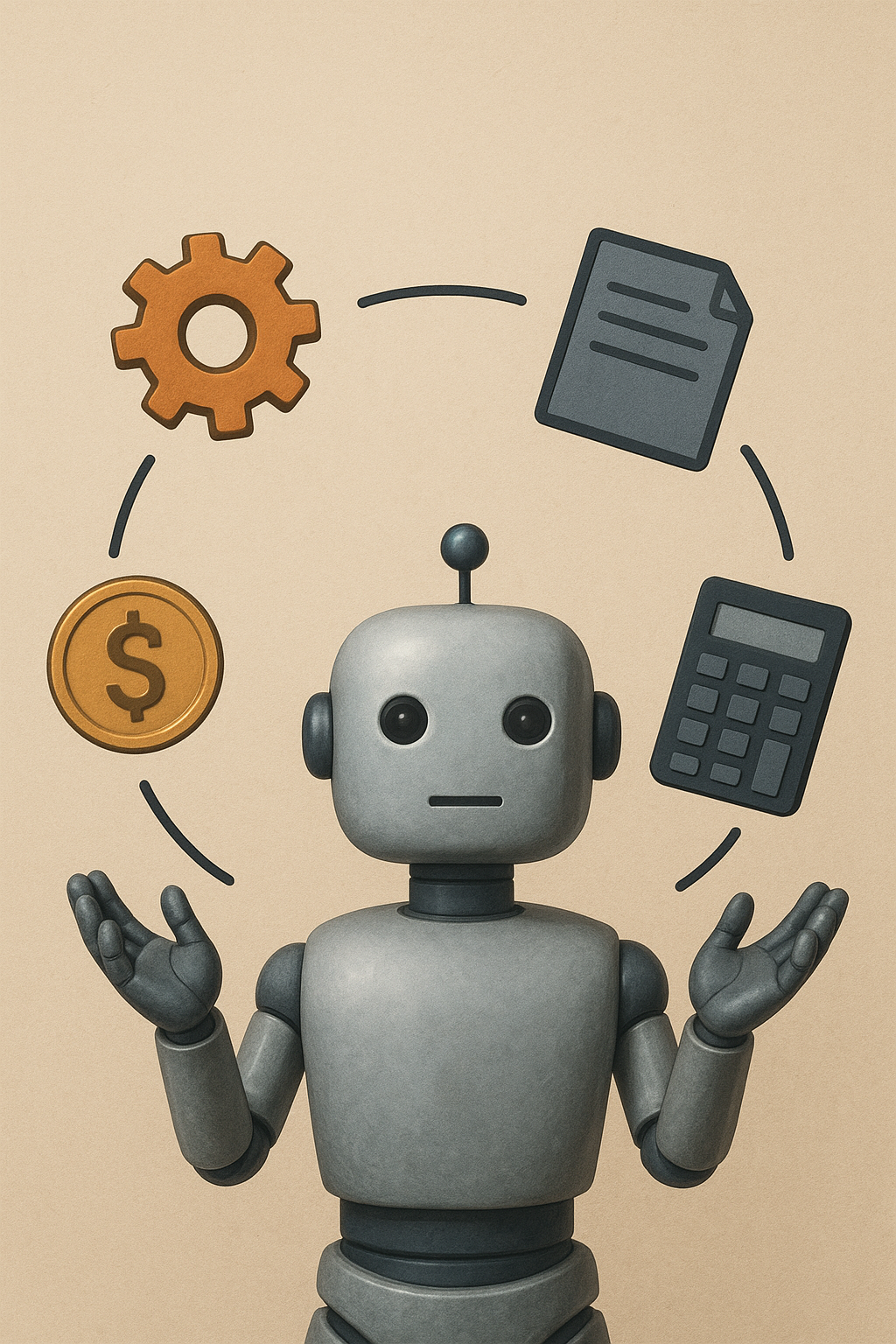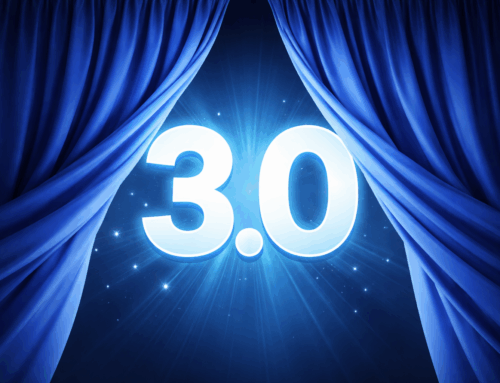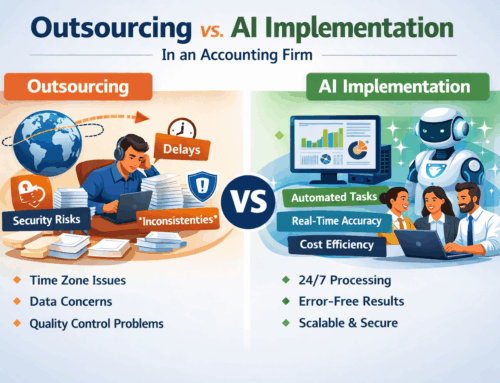Why You Don't Need AI For Everything
AI in accounting is still a big old buzzword. You can’t scroll for more than five seconds without seeing someone shouting about their “AI powered” something or other. It’s everywhere — from email tools to calculators that claim to “revolutionise your workflow.”
At Bots For That, we believe AI is worth the investment — but only when you’re ready to implement it, and only if you actually need it. Because here’s the reality that most companies don’t shout about…
You don’t need AI for everything.

When AI really earns its keep
Let’s start with the good stuff. AI can genuinely make a huge difference in accounting when used in the right way. It’s not about replacing you — it’s about doing the boring bits faster so you can get on with the clever, human stuff.
1. Reducing manual tasks
AI can take those repetitive, time consuming jobs off your plate. Think of all those hours spent copying data from one place to another, matching invoices, and reconciling bank transactions. With automation and smart AI assistance, those jobs are done in seconds — and more accurately, too. Less time squinting at spreadsheets, more time actually analysing the numbers.
2. Chasing clients (without losing your patience)
Every accountant knows the pain of chasing clients for missing documents. AI can help automate those gentle reminders — or the slightly firmer ones — so you don’t have to. Instead of spending your mornings firing off “Just checking in!” emails, AI can handle that for you, politely and persistently.
3. Putting together reports
From management reports to audit summaries, AI can help compile and structure your data in record time. Instead of manually pulling figures and formatting charts, AI can generate accurate, easy to digest reports, leaving you to focus on what really matters: interpreting the results and advising your clients.
These are the kinds of tasks where AI shines — the practical, repetitive, structured stuff that eats into your day but doesn’t need your creative brainpower.
How to tell if your firm is actually ready for AI
Before diving headfirst into the world of AI, it’s worth asking a few key questions. Because AI is only as effective as the systems, data, and people supporting it.
1. Are your processes already clear and consistent?
If every member of your team does things differently, AI will only amplify that confusion. Standardised, well documented processes are essential before introducing automation. Think of AI as the engine — but your processes are the track it runs on.
2. Is your data clean and accessible?
AI thrives on good data. If your client records, transaction details, or file structures are messy, AI will struggle to deliver accurate results. Getting your data organised first means your AI tools will actually perform the way they’re supposed to.
3. Do you have clear goals for using AI?
“Using AI” isn’t a goal. “Reducing client follow up time by 50%” or “automating 30% of month end reporting” is. Having measurable, realistic targets ensures AI adds value instead of becoming another shiny tool gathering digital dust.
4. Does your team understand and support it?
If your team feels threatened by AI or doesn’t understand how to use it, adoption will fail before it even starts. Make sure everyone knows that AI is there to help, not to replace. When your people are on board, your results will follow.
Once these boxes are ticked, then AI starts to make real sense. Until then, it might be best to focus on refining what you already do well.
When AI is just… unnecessary
Now for the bit that companies don’t tend to tell you. AI has its limits, and there are plenty of times when you’re far better off without it.
1. Talking to clients (especially about complex advice)
Your clients come to you because they trust you — you, not an algorithm. Conversations about business growth, future planning, or financial health are deeply personal and contextual. An AI can crunch numbers, but it doesn’t understand your client’s tone, stress levels, or long term goals the way you do. In advisory work, empathy and nuance matter more than automation.
2. General ideation and creative thinking
Coming up with new service ideas, firm branding, or internal process improvements? That’s where the human brain is still miles ahead. AI can help you brainstorm, but it doesn’t know your firm’s personality or your client base. Sometimes, all you need is a coffee, a whiteboard, and your team — not an AI “assistant” trying to overcomplicate things.
3. Relationship building and firm culture
No piece of software can replace the sense of trust, teamwork, and humour that keeps your firm running smoothly. Those “how’s your week been?” chats, Friday catch ups, or small gestures of support — they’re what build loyalty, not automation scripts.
4. Over automation leading to under engagement
When firms try to automate everything, they often end up feeling disconnected from their own clients and data. If every task is delegated to a tool, you risk losing touch with the very details that make your advice valuable. AI should enhance your work — not distance you from it.
The reality
So yes, AI is powerful. It’s transforming accounting in ways we couldn’t have imagined even a few years ago. But like any tool, it’s only as good as how and when you use it.
Sometimes the best tech decision you can make is to not use AI if what you’re doing relies on your judgment, relationships, or creativity.
At Bots For That, we’ll always be honest about what AI can do for you — and what it can’t.
Get in touch today; to find out how we could give your firm a boost – if you’re ready for it.




